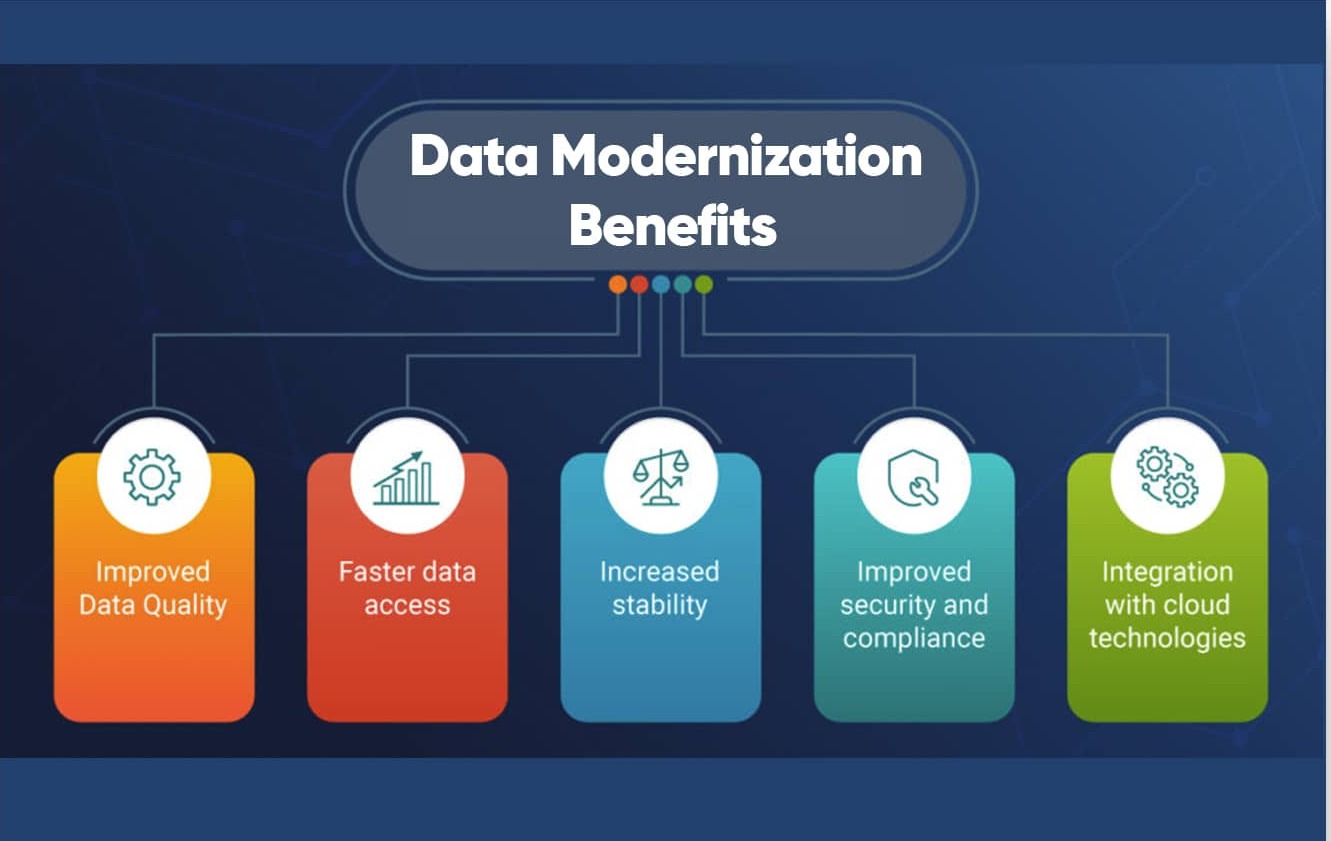
Data modernization refers to the process of updating and transforming an organization's data management infrastructure, systems, and practices to meet the demands of contemporary business needs and technological advancements. It involves adopting modern technologies, methodologies, and best practices to enhance the collection, storage, processing, analysis, and utilization of data within an organization.
Key aspects of data modernization include:
Migration to the Cloud:
Moving data storage and processing to cloud-based platforms to leverage scalability, flexibility, and cost-effectiveness.Adoption of Modern Data Architectures:
Implementing updated data architectures that support the efficient handling of structured and unstructured data.Data Integration and ETL (Extract, Transform, Load):
Streamlining and automating data integration processes to ensure seamless data flow between various systems and applications.Data Governance:
Establishing robust data governance practices to ensure data quality, security, and compliance with regulations.Advanced Analytics and Machine Learning:
Incorporating advanced analytics and machine learning techniques to derive actionable insights from data.Real-time Data Processing:
Implementing technologies that enable real-time processing and analysis of data for immediate decision-making.Data Security and Privacy Enhancements:
Strengthening data security measures to protect sensitive information from unauthorized access or breaches. Ensuring compliance with data privacy regulations and standards.Data Catalogs and Metadata Management:
Implementing data catalogs and metadata management solutions to provide a centralized inventory of available data assets.Self-Service Analytics:
Empowering business users with self-service analytics tools, reducing reliance on IT for data analysis.Agile Development and DevOps Practices:
Adopting agile development methodologies and DevOps practices to accelerate the development and deployment of data-related solutions.Data Quality Management:
Implementing processes and tools to monitor, assess, and improve the quality of data throughout its lifecycle.Cultural Shift to a Data-Driven Mindset:
Fostering a culture that values and prioritizes data-driven decision-making, with training programs and awareness initiatives.